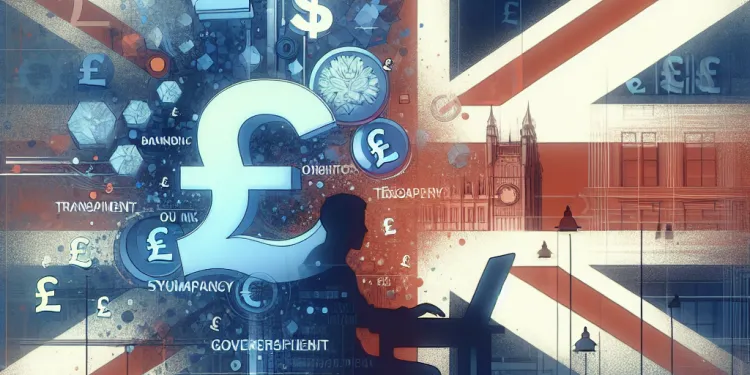
Find Help
More Items From Ergsy search
-
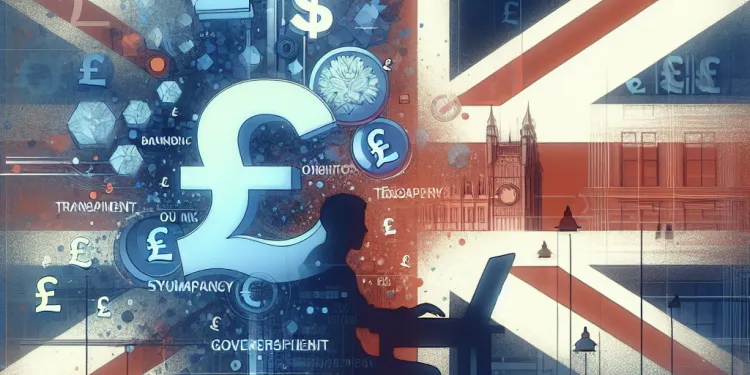
How can government policies influence transparency in banking fees?
Relevance: 100%
-

Why is there a call for greater transparency in banking fees?
Relevance: 69%
-

Calls for Greater Transparency in Banking Fees as Complaints Rise
Relevance: 69%
-

How can banks improve transparency regarding their fees?
Relevance: 66%
-

What initiatives are in place to address banking fee transparency?
Relevance: 65%
-
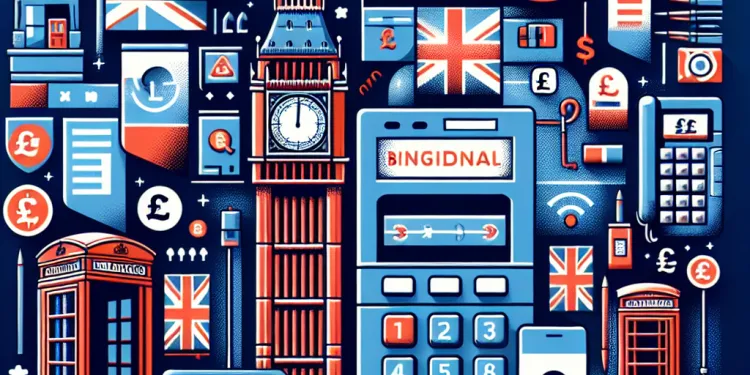
What actions are consumer rights groups taking regarding banking fee transparency?
Relevance: 64%
-

How does technology help in enhancing transparency in banking fees?
Relevance: 63%
-

What feedback do customers give regarding banking fees?
Relevance: 51%
-

How do banking fees impact financial inclusion?
Relevance: 50%
-
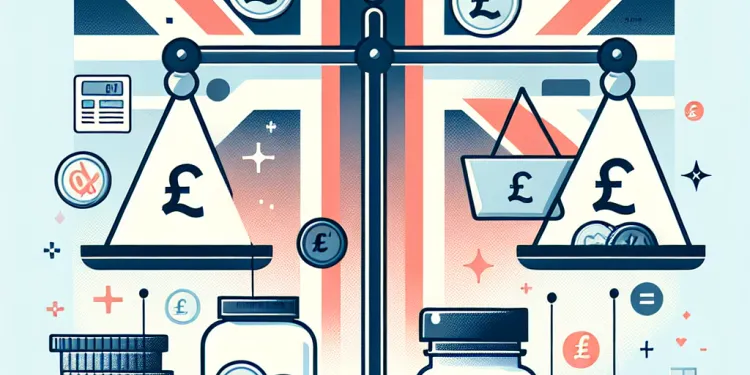
What role do regulatory bodies play in fee transparency?
Relevance: 50%
-

What are the consequences for banks not complying with transparency standards?
Relevance: 49%
-

Can customers dispute unexpected banking fees?
Relevance: 47%
-

Are there specific banking services more prone to opaque fee structures?
Relevance: 47%
-
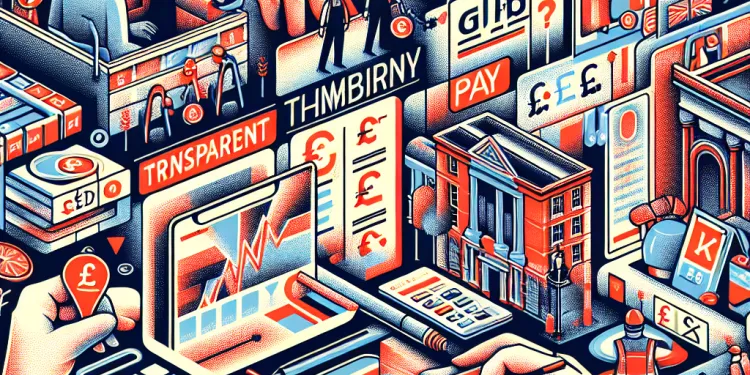
Do gig workers have the right to transparency in pay and fees?
Relevance: 46%
-

Do all banks have the same fee structures?
Relevance: 46%
-

Do online banks have lower fees than traditional banks?
Relevance: 46%
-

What role do customer service representatives play in fee transparency?
Relevance: 44%
-

Why are some banking fees unexpectedly high?
Relevance: 43%
-

How can consumers protect themselves from hidden banking fees?
Relevance: 41%
-
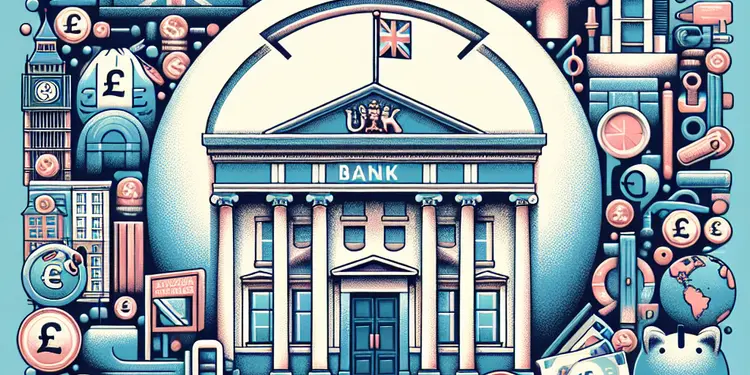
What fees should I avoid when choosing a new bank?
Relevance: 41%
-

What fees should I avoid when choosing a new bank?
Relevance: 40%
-

How can disputes over banking fees be resolved effectively?
Relevance: 40%
-

What are some examples of hidden fees in banking?
Relevance: 39%
-

Are there any hidden fees I should be aware of?
Relevance: 36%
-

Are there any fees to claim money back?
Relevance: 36%
-

Are there any hidden fees with Monzo or Revolut?
Relevance: 36%
-

Are online banks cheaper than traditional banks?
Relevance: 33%
-

Are online banks cheaper than traditional banks?
Relevance: 32%
-

How important is financial transparency in preventing disputes?
Relevance: 32%
-

Can I use Monzo or Revolut for everyday banking?
Relevance: 31%
-

What is the role of corporate governance in preventing disputes?
Relevance: 31%
-

Can I save money by switching my bank?
Relevance: 31%
-

Is there a fee to bring a case to the tribunal?
Relevance: 30%
-

How can I ensure I get better customer service with a new bank?
Relevance: 30%
-

What's the difference between switching to a credit union versus a bank?
Relevance: 30%
-

What types of fees are customers most concerned about?
Relevance: 29%
-

Can I save money by switching my bank?
Relevance: 29%
-

Are there benefits to having multiple bank accounts at different banks?
Relevance: 29%
-

Are there benefits to having multiple bank accounts at different banks?
Relevance: 29%
-

How can I ensure I get better customer service with a new bank?
Relevance: 29%
Introduction
Government policies play a crucial role in ensuring transparency within the banking sector, particularly when it comes to fees associated with banking services. Transparent banking fees enable consumers to make informed decisions and enhance trust between customers and financial institutions. In the UK, various government policies are designed to promote transparency, protect consumer interests, and ensure fairness in the banking industry.
Regulation and Legislation
Regulation and legislation are key tools that governments use to promote transparency in banking fees. In the UK, the Financial Conduct Authority (FCA) is the primary regulatory body overseeing these practices. The FCA's role involves ensuring that banks provide clear and fair information about fees. Legislation such as the Consumer Rights Act 2015 further reinforces transparency by mandating that financial terms are straightforward and not misleading.
Disclosure Obligations
One of the most direct ways government policies influence transparency is through disclosure obligations. Banks are required to disclose all applicable fees and charges to customers. This includes upfront disclosure during account setup and continuous updates as charges change. Such policies aim to eliminate hidden fees, ensuring customers are fully aware of potential costs. Initiatives like the Payment Services Regulations 2017 focus on ensuring customers receive pre-contractual information about fees in a clear, comparable format.
Standardisation of Fee Structures
Another approach to enhancing transparency is the standardization of fee structures. The government can mandate standard formats and language for fee disclosures, making it easier for consumers to compare different banking products. This was seen in the implementation of the CMA's Retail Banking Market Investigation Order in 2017, which aimed to standardize how banks display service fees and charges. This initiative helps consumers make informed comparisons, fostering competitiveness and transparency across the sector.
Consumer Education and Empowerment
Government policies also focus on consumer education and empowerment. Initiatives to educate the public about financial products and associated fees can significantly improve transparency. For instance, the Money and Pensions Service, an arm of the UK government, provides resources to help consumers understand banking fees and make informed decisions. Such efforts empower consumers to question and comprehend fee structures, holding banks accountable for transparency.
Monitoring and Enforcement
Effective monitoring and enforcement are critical to maintaining transparency in banking fees. Regulatory bodies, such as the FCA, are tasked with monitoring compliance with transparency regulations. They have the authority to enforce penalties on institutions that fail to adhere to the standards. These enforcement actions serve as a deterrent, encouraging banks to maintain transparency in their fee disclosure practices.
Conclusion
Government policies significantly impact transparency in banking fees, ensuring consumers have access to clear, accurate information and are protected from unfair banking practices. Through regulation, standardization, education, and enforcement, the UK government strives to maintain a transparent banking environment that fosters trust and competition. These policies are essential to safeguarding consumer interests and promoting a fair financial market.
Introduction
The government makes rules to help people understand bank fees. This is important because it helps people know what they are paying for. When banks are clear about fees, people trust them more. In the UK, the government has made rules to make sure banks are fair and clear about their fees.
Regulation and Legislation
The government uses rules to make sure banks are clear about their fees. In the UK, the Financial Conduct Authority (FCA) checks that banks give clear information about fees. There are also laws like the Consumer Rights Act 2015. These laws help make sure information about fees is easy to understand and not tricky.
Disclosure Obligations
The government makes banks tell people about all the fees. This means banks have to show fees when a person opens an account and tell them if fees change. This helps stop hidden fees. There are rules like the Payment Services Regulations 2017 that make sure banks give clear information about fees.
Standardisation of Fee Structures
Another way to help people understand fees is by making it all look the same. The government can ask banks to use the same way to show fees. This makes it easier for people to compare banks. In 2017, a rule was made to help banks show fees in a similar way. This helps people choose the best bank for them.
Consumer Education and Empowerment
The government also helps people learn about bank fees. They teach people so they can make smart choices about banking. The Money and Pensions Service helps people understand fees. This helps people ask questions and know what they are being charged for. It makes banks more honest.
Monitoring and Enforcement
The government checks that banks follow the rules about fees. Bodies like the FCA make sure banks are being clear about their fees. If banks don't follow the rules, they can be punished. This makes banks want to be honest about fees.
Conclusion
The government makes sure banks are clear about fees. This helps people understand what they are paying for and makes banks more fair. Rules and teaching help make sure everyone knows the costs. This keeps the banking system honest and fair for everyone.
Frequently Asked Questions
What are banking fees?
Banking fees are charges imposed by financial institutions on their products and services, such as account maintenance, ATM usage, overdraft, and wire transfers.
Why is transparency in banking fees important?
Transparency in banking fees is important because it helps consumers understand what they are paying for, enables them to compare products and services, and prevents unexpected charges.
How can government policies improve transparency in banking fees?
Government policies can mandate standardized disclosure requirements, enforce clear contract terms, and establish fair advertising practices to improve transparency in banking fees.
What role do disclosure requirements play in fee transparency?
Disclosure requirements ensure that banks provide clear and concise information about their fees, allowing consumers to make informed decisions and compare different options.
Can regulatory bodies enforce transparency in banking fees?
Yes, regulatory bodies can enforce transparency by monitoring compliance, imposing penalties for violations, and requiring banks to adhere to set guidelines for fee disclosures.
How do standardization policies affect banking fee transparency?
Standardization policies require banks to present fee information in a consistent format, which makes it easier for consumers to understand and compare fees across different institutions.
What impact do consumer protection laws have on banking fee transparency?
Consumer protection laws safeguard against deceptive and unfair fee practices, thereby ensuring that banks offer clear and honest information about their fees.
How can transparency in banking fees encourage competition?
Transparency allows consumers to easily compare banking products, encouraging competition among banks to offer better services and lower fees.
What is the role of simplified fee structures in transparency?
Simplified fee structures reduce confusion, making it easier for consumers to understand what they are paying for and to identify any hidden charges.
Can government policies influence international banking fee transparency?
Government policies can influence international fee transparency by coordinating with global regulatory bodies and setting international standards for fee disclosures.
How do banks benefit from transparent fee policies?
Banks benefit from transparent fee policies by building customer trust, reducing disputes, and maintaining good reputations, which can lead to increased customer loyalty.
What challenges exist in implementing transparency policies for banking fees?
Challenges include resistance from financial institutions, complexity in standardizing disclosures, and ensuring compliance across varied banking services and products.
How do transparency initiatives intersect with financial literacy programs?
Transparency initiatives complement financial literacy programs by empowering consumers with clear information that helps them make informed financial decisions.
What role do digital tools play in enhancing fee transparency?
Digital tools like fee calculators and online comparison websites empower consumers with easy access to fee information, facilitating transparency.
Can technology-driven solutions support government policies on transparency?
Yes, technology-driven solutions can support these policies by providing platforms for tracking fee disclosures and reporting non-compliance quickly.
How can consumer feedback influence government policies on banking fees?
Consumer feedback can highlight areas of confusion or dissatisfaction, prompting government action to amend policies for clearer fee disclosures.
What is the connection between transparency in banking fees and consumer trust?
Transparency builds consumer trust by ensuring that fees are clearly communicated, thereby fostering a sense of honesty and reliability in financial interactions.
How can educational initiatives enhance the effectiveness of transparency policies?
Educational initiatives can raise awareness about consumers' rights, making transparency policies more effective by ensuring consumers are informed and vigilant.
What examples exist of successful government policies enhancing fee transparency?
Examples include the UK's introduction of standard annual fees for credit cards and the US's disclosure requirements under the Truth in Savings Act.
How can policy evaluations improve transparency in banking fees?
Policy evaluations can identify gaps or loopholes in current requirements, leading to more effective regulations that ensure clearer fee disclosure practices.
What are banking fees?
Banks sometimes charge money for their services. This money is called a "banking fee."
Here are some examples:
- You might pay a fee to keep your money in a bank account.
- You might pay a fee if you take out money when there is none left in your account.
If you need help understanding banking fees, you can:
- Ask a family member or friend to explain.
- Use the pictures or guides the bank gives you.
Banks charge you money for some of their services. These charges are called banking fees.
Some of these charges happen when you use an ATM, keep your bank account open, spend too much money, or send money to someone.
If reading is hard, you can use tools like text-to-speech that can help read the text aloud to you.
Why is it important to know about bank fees?
Banks charge money for some of their services. This is called a fee.
Knowing about these fees is important because:
- You can understand how much you have to pay.
- It helps you make good choices about which bank to use.
- You can avoid surprises when you see your bill.
Ask someone you trust for help if you're unsure about bank fees. You can also use online tools to learn more.
It's important for banks to be clear about their fees. This helps people know what they are paying for. It also helps them compare different banks and stops surprise charges.
How can the government make banking fees clearer?
The government can make rules to help make banks show their fees more clearly. This way, everyone can understand how much it costs to use a bank.
Here are some ideas to help people understand banking fees better:
- Use simple words, not big words.
- Make a list of all the fees so everyone can see them.
- Show examples to help people know what fees to expect.
- Use pictures or diagrams to explain fees.
Tools like videos or easy-to-read pamphlets can also help people understand banking fees.
The government can make rules to help people understand bank fees. These rules can make sure:
- Banks tell everyone the same important information.
- Bank paperwork is easy to understand.
- Advertisements are honest and fair.
These rules help us see clearly what banks are charging.
You can use tools like a calculator or get help from someone you trust to better understand bank fees.
Why is it important to share information about fees?
Sharing information about fees helps people understand what they are paying for. It makes everything clear and honest. This way, people know if the costs are fair.
If you want to learn more, you can:
- Use pictures or diagrams to see how fees work.
- Ask someone to explain in simple words.
Banks must be clear when telling people about their fees. This helps people understand and choose the best bank for them.
Can Groups Make Banks Show Their Fees Clearly?
Yes, there are groups that make sure banks are clear about their rules. They check if banks follow the rules. If a bank breaks the rules, the group can give them a punishment. These groups also make sure banks show clear information about any fees.
How do rules make banking fees easier to understand?
Banks have rules to follow. These rules help make bank fees easier to see and understand. When banks use the same rules, it's easier for us to know what we are paying for.
Here’s how it helps:
- Simple Words: Banks use easy words so we know what fees mean.
- Clear Lists: Banks show all fees in a list. It's much easier to find and read.
- Same Style: All banks follow the same style. It's like using the same rules in a game. It helps us compare and choose better.
Tools to Help:
- Fee Helpers: Some tools can help you see all fees and compare them. They work like a magnifying glass to help you see better.
- Friendly Support: You can ask someone you trust to help explain or read fees with you.
Laws say banks must show fees the same way. This helps people understand and look at fees from different banks.
How do consumer protection laws affect how clear bank fees are?
Consumer protection laws are rules that help keep people safe when they use banks. These rules make banks explain their fees very clearly. This means people know exactly what they have to pay.
These rules help people understand the costs better. When banks must be clear about fees, it stops surprises. This helps people trust banks more.
If reading is difficult, here are some tips:
- Ask someone you trust to help explain bank fees.
- Use online tools that read text out loud for you.
- Look for videos that explain bank fees in simple words.
Consumer protection laws help keep people safe from tricky and unfair fees. These laws make sure banks give clear and honest information about what their fees are.
How can clear bank fees help banks compete?
Clear bank fees mean you know exactly what you are paying. This can help you choose the best bank for you. When banks show their fees clearly, it is easy to see which one is cheaper or better. This means banks try harder to give good service and keep their prices low.
Tools like comparison websites can help you see and compare bank fees. You can also ask a friend or family member to help you understand these fees better.
When banks are clear about their products, people can compare them more easily. This makes banks try harder to give better services and lower costs.
How do simple fee plans help people understand better?
Simple prices help people know what they are paying for. It makes it easy to see if there are any extra costs.
Can the government change how banks show their fees?
Governments can make fees clearer by working with other countries and setting rules for showing how much things cost.
How do banks gain from clear fee policies?
Banks make money in different ways. One way is by charging fees for their services. When banks have clear fee policies, it means they explain these fees in a simple way. This helps people understand what they need to pay and why. Here is how clear fee policies help banks: 1. **Trust**: Clear fees help people trust the bank because there are no surprises. People know how much things cost. 2. **Better Choices**: When people know the costs, they can choose the best services for their needs. This makes them happy, and they might stay with the bank for a long time. 3. **Fewer Complaints**: If people understand the fees, they complain less. This saves time for the bank and the customers. If understanding bank fees is hard, here are some tools and techniques that can help: - **Ask Questions**: Always ask the bank staff if you don’t understand something. - **Use a Calculator**: Use a calculator to see how fees add up. - **Look for Easy Guides**: Some banks make simple guides or videos to explain their fees. These can be really helpful. Understanding fees is important. It helps you use bank services better.Banks gain from clear fee rules because it helps make customers trust them. It also cuts down on arguments and keeps the banks' reputation good. This can make more customers stick with the bank.
Helpful tips for understanding:
- Ask questions if you're not sure about something.
- Use pictures or drawings to help explain words.
- Listen to someone read it out loud to you.
What problems do banks face when making their fees clear?
Banks have to make sure everyone understands their fees. This can be hard to do. Here are some reasons why:
- Fees are often complicated.
- Different banks have different rules.
- Fees may change and keep getting updated.
To help, banks can use simple words and pictures. They can also provide help for people who need more explanation. If something is hard to understand, ask questions or ask for help.
There are some problems we need to solve. Banks might not want to change. It can be hard to make rules that work for everyone. Also, we need to make sure different banks and services follow these rules.
How do programs that show where money goes work with teaching about money?
Programs that tell us clearly where money is going can help with learning about money. They help people understand money better by showing how it is used.
Learning tools like pictures, videos, and simple charts can help explain money ideas. These tools make it easy to see and understand how money moves around.
Transparency projects work well with money learning programs. They give people easy-to-understand information. This helps people make smart choices about their money.
How do digital tools help people understand fees better?
Digital tools are like computers and apps. They help us see and understand how much things cost. This makes it easier to know what you are paying for.
Here are some ways they help:
- Clear Information: Digital tools show fees clearly so you can see where your money goes.
- Easy to Use: These tools are made to be simple, so everyone can use them.
- Helpful Apps: Some apps can help you keep track of money and fees. They can remind you when you need to pay.
Using digital tools can make handling fees and money less confusing!
Digital tools like fee calculators and online comparison websites help people find out about fees easily. They make it clear and simple to understand costs.
Can technology help the government be more open?
Can computers and the internet help the government share more information with people?
Yes, technology can help. It gives us tools to check fees and tell us if someone breaks the rules.
How can what people say change government rules about bank costs?
Sometimes, people tell the government what they think about bank fees. This is how much money banks charge for things like keeping your account.
When many people say the same thing, the government listens. They might change the rules to make bank fees fairer.
If you want to talk about bank fees, you can:
- Join a group of people who care about this.
- Write your thoughts and send them to the government.
- Use websites that help you share your opinion easily.
When people share what they think, it can show problems. If things are hard to understand or people are unhappy, the government can help fix this. They can make rules so that fees are easier to understand.
How do clear bank fees help people trust banks?
Being honest helps people trust you. If you always tell people about any costs clearly, they will feel you are honest and reliable. This is important when dealing with money.
How can schools and learning programs make transparency rules work better?
Schools and learning programs can help people understand how rules are made and followed. This makes it easier for everyone to see what's going on.
Ways to help:
- Visual aids: Use pictures or charts to show information.
- Simple words: Use easy words to explain ideas.
- Stories: Tell stories to make things clear.
Teaching people about their rights helps them know what they are allowed to do. This makes rules about being honest work better because people know what to watch out for.
What are some examples of government rules that help people see costs clearly?
Here are some things you can do to understand the question better:
- Look for short videos or pictures that explain how government rules work. These are easier to understand.
- Ask someone or use an app to read the text to you.
- Use a highlighter to mark important words.
There are rules in the UK and the US to help people understand money better.
In the UK, there's a rule that credit cards need to have a standard fee every year.
In the US, there's a rule called the Truth in Savings Act. This rule says banks must tell you how their accounts work.
Tools like picture charts or listening to information can help if reading is hard.
How can checking bank rules help people understand bank fees better?
Banks charge money for some services. This is called a fee.
Sometimes these fees can be hard to understand.
When experts look at these rules, they can help make them clear.
This helps people know how much they need to pay and why.
You can use tools like charts or simple guides to understand fees better.
Checking the rules can show where there are problems or things missing. This helps make better rules so people can understand fees more easily.
Useful Links
This website offers general information and is not a substitute for professional advice.
Always seek guidance from qualified professionals.
If you have any medical concerns or need urgent help, contact a healthcare professional or emergency services immediately.
Some of this content was generated with AI assistance. We’ve done our best to keep it accurate, helpful, and human-friendly.
- Ergsy carfully checks the information in the videos we provide here.
- Videos shown by Youtube after a video has completed, have NOT been reviewed by ERGSY.
- To view, click the arrow in centre of video.
- Most of the videos you find here will have subtitles and/or closed captions available.
- You may need to turn these on, and choose your preferred language.
- Go to the video you'd like to watch.
- If closed captions (CC) are available, settings will be visible on the bottom right of the video player.
- To turn on Captions, click settings .
- To turn off Captions, click settings again.
More Items From Ergsy search
-

How can government policies influence transparency in banking fees?
Relevance: 100%
-

Why is there a call for greater transparency in banking fees?
Relevance: 69%
-

Calls for Greater Transparency in Banking Fees as Complaints Rise
Relevance: 69%
-

How can banks improve transparency regarding their fees?
Relevance: 66%
-

What initiatives are in place to address banking fee transparency?
Relevance: 65%
-

What actions are consumer rights groups taking regarding banking fee transparency?
Relevance: 64%
-

How does technology help in enhancing transparency in banking fees?
Relevance: 63%
-

What feedback do customers give regarding banking fees?
Relevance: 51%
-

How do banking fees impact financial inclusion?
Relevance: 50%
-

What role do regulatory bodies play in fee transparency?
Relevance: 50%
-

What are the consequences for banks not complying with transparency standards?
Relevance: 49%
-

Can customers dispute unexpected banking fees?
Relevance: 47%
-

Are there specific banking services more prone to opaque fee structures?
Relevance: 47%
-

Do gig workers have the right to transparency in pay and fees?
Relevance: 46%
-

Do all banks have the same fee structures?
Relevance: 46%
-

Do online banks have lower fees than traditional banks?
Relevance: 46%
-

What role do customer service representatives play in fee transparency?
Relevance: 44%
-

Why are some banking fees unexpectedly high?
Relevance: 43%
-

How can consumers protect themselves from hidden banking fees?
Relevance: 41%
-

What fees should I avoid when choosing a new bank?
Relevance: 41%
-

What fees should I avoid when choosing a new bank?
Relevance: 40%
-

How can disputes over banking fees be resolved effectively?
Relevance: 40%
-

What are some examples of hidden fees in banking?
Relevance: 39%
-

Are there any hidden fees I should be aware of?
Relevance: 36%
-

Are there any fees to claim money back?
Relevance: 36%
-

Are there any hidden fees with Monzo or Revolut?
Relevance: 36%
-

Are online banks cheaper than traditional banks?
Relevance: 33%
-

Are online banks cheaper than traditional banks?
Relevance: 32%
-

How important is financial transparency in preventing disputes?
Relevance: 32%
-

Can I use Monzo or Revolut for everyday banking?
Relevance: 31%
-

What is the role of corporate governance in preventing disputes?
Relevance: 31%
-

Can I save money by switching my bank?
Relevance: 31%
-

Is there a fee to bring a case to the tribunal?
Relevance: 30%
-

How can I ensure I get better customer service with a new bank?
Relevance: 30%
-

What's the difference between switching to a credit union versus a bank?
Relevance: 30%
-

What types of fees are customers most concerned about?
Relevance: 29%
-

Can I save money by switching my bank?
Relevance: 29%
-

Are there benefits to having multiple bank accounts at different banks?
Relevance: 29%
-

Are there benefits to having multiple bank accounts at different banks?
Relevance: 29%
-

How can I ensure I get better customer service with a new bank?
Relevance: 29%


